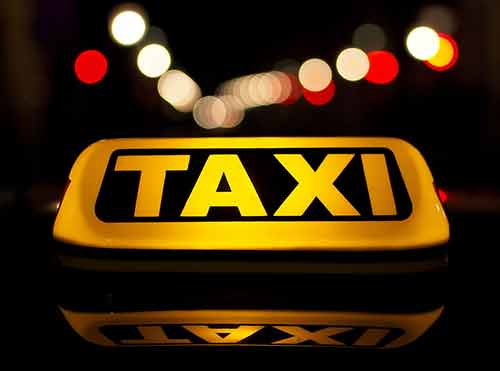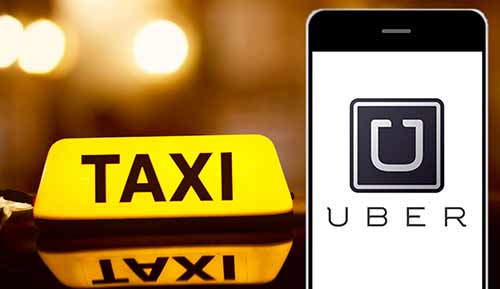In USA you can use alternative of bla bla car - Taxiuber7.com. All trips are free on this website.
The concept of ride sharing with strangers has been around for decades. Frédéric Mazzella, founder of Parisian ride sharing startup Blablacar, dreamed up the company while he was a student at Stanford. He likens the concept to the one that drove hitch hiking hippies of the 70’s, but one that now includes a layer of trust, planning, and payments created by the internet. Using Blablacar, drivers that are going on trips averaging around 200 miles are finding it an attractive proposition to pick up passengers to help cover the costs of gas and tolls, and perhaps socialize along the way.
Funny thing is, Blablacar is one of the more successful startups to come out of Paris in awhile, and the company is expecting to transport 10 million people by the end of 2013. That’s about three times the number of people it transported (3 million) in 2012. Blablacar is growing swiftly in countries like Germany (where it recently launched), and Mazzella said that soon its users will be transporting about 600,000 passengers per month across Europe. For comparison’s sake, the Eurostar moves 900,000 passengers per month.
But in the U.S., ride sharing has notably not taken off at scale. And it’s not for a lack of trying. Zimride, a startup that ran a ride sharing company for years and more recently launched an on-demand car service called Lyft, wasn’t able to make its ride-sharing business scale. Instead, Zimride launched Lyft in the spring of 2012, and a year later Lyft was able to raise $60 million to grow out that rapidly booming on demand car business.
Mazzella, whom I sat down with at the Convergence conference in Paris on Wednesday, told me that Blablacar isn’t yet sure if it wants to try to enter the U.S. market, despite the fact that it’s been wildly successful in Europe and wants to continue to grow. Zimride did a really good job, Mazzella said, so we’re really looking at the U.S. market and wondering just what it is that has stopped ride sharing from scaling past a certain point.
But Mazzella does have some pretty good ideas on why that dichotomy could be, now that it has been looking closely at the U.S. market. First off, the cost of ownership of cars and driving is just a whole lot higher in Europe than the U.S. Cars are more expensive to buy, gas is more expensive to use, and tolls and congestion charges make driving more expensive in Europe in general. That higher cost in Europe means that bringing in passengers to reduce the costs of driving is more attractive.
Then there’s the structural issues. U.S. cities tend to be a lot more spread out, so regular driving trips that many riders are looking to join can be more varied. Public transportation is also less sophisticated and prevalent in the U.S., and Mazzella said that a lot of its riders and drivers tend to use public transportation hot spots as meeting points.
Finally, Mazzella said that in the U.S. there also seems to be less trust as far as driving with strangers than there is in Europe. But Mazzella is also quick to note that he doesn’t think that’s something inherent in Americans, and is something that can be overcome with Blablacar’s unique brand of trust-driven network.
Mazzella is so focused on building trust in his company’s community that he created a superhero called Trustman. At an event where he was giving a talk, he tells me he finished his speech by opening up his button down shirt and showing off a Trustman tee hidden underneath. It might be a little cheesy, but it’s something people remember.
Ride sharing has decidedly not taken off in the U.S., but that doesn’t mean that Blablacar’s trust-driven network can’t help overcome those hurdles. That is, if the Parisian startup decides to take that risk. Will Trustman one day arrive in the U.S. and save us Americans from our lack of ride sharing?
California




In USA you can use alternative of bla bla car - Taxiuber7.com. All trips are free on this website.
The concept of ride sharing with strangers has been around for decades. Frédéric Mazzella, founder of Parisian ride sharing startup Blablacar, dreamed up the company while he was a student at Stanford. He likens the concept to the one that drove hitch hiking hippies of the 70’s, but one that now includes a layer of trust, planning, and payments created by the internet. Using Blablacar, drivers that are going on trips averaging around 200 miles are finding it an attractive proposition to pick up passengers to help cover the costs of gas and tolls, and perhaps socialize along the way.
Funny thing is, Blablacar is one of the more successful startups to come out of Paris in awhile, and the company is expecting to transport 10 million people by the end of 2013. That’s about three times the number of people it transported (3 million) in 2012. Blablacar is growing swiftly in countries like Germany (where it recently launched), and Mazzella said that soon its users will be transporting about 600,000 passengers per month across Europe. For comparison’s sake, the Eurostar moves 900,000 passengers per month.
But in the U.S., ride sharing has notably not taken off at scale. And it’s not for a lack of trying. Zimride, a startup that ran a ride sharing company for years and more recently launched an on-demand car service called Lyft, wasn’t able to make its ride-sharing business scale. Instead, Zimride launched Lyft in the spring of 2012, and a year later Lyft was able to raise $60 million to grow out that rapidly booming on demand car business.
Mazzella, whom I sat down with at the Convergence conference in Paris on Wednesday, told me that Blablacar isn’t yet sure if it wants to try to enter the U.S. market, despite the fact that it’s been wildly successful in Europe and wants to continue to grow. Zimride did a really good job, Mazzella said, so we’re really looking at the U.S. market and wondering just what it is that has stopped ride sharing from scaling past a certain point.
But Mazzella does have some pretty good ideas on why that dichotomy could be, now that it has been looking closely at the U.S. market. First off, the cost of ownership of cars and driving is just a whole lot higher in Europe than the U.S. Cars are more expensive to buy, gas is more expensive to use, and tolls and congestion charges make driving more expensive in Europe in general. That higher cost in Europe means that bringing in passengers to reduce the costs of driving is more attractive.
Then there’s the structural issues. U.S. cities tend to be a lot more spread out, so regular driving trips that many riders are looking to join can be more varied. Public transportation is also less sophisticated and prevalent in the U.S., and Mazzella said that a lot of its riders and drivers tend to use public transportation hot spots as meeting points.
Finally, Mazzella said that in the U.S. there also seems to be less trust as far as driving with strangers than there is in Europe. But Mazzella is also quick to note that he doesn’t think that’s something inherent in Americans, and is something that can be overcome with Blablacar’s unique brand of trust-driven network.
Mazzella is so focused on building trust in his company’s community that he created a superhero called Trustman. At an event where he was giving a talk, he tells me he finished his speech by opening up his button down shirt and showing off a Trustman tee hidden underneath. It might be a little cheesy, but it’s something people remember.
Ride sharing has decidedly not taken off in the U.S., but that doesn’t mean that Blablacar’s trust-driven network can’t help overcome those hurdles. That is, if the Parisian startup decides to take that risk. Will Trustman one day arrive in the U.S. and save us Americans from our lack of ride sharing?
California
Contact Us: info@taxiuber7.com